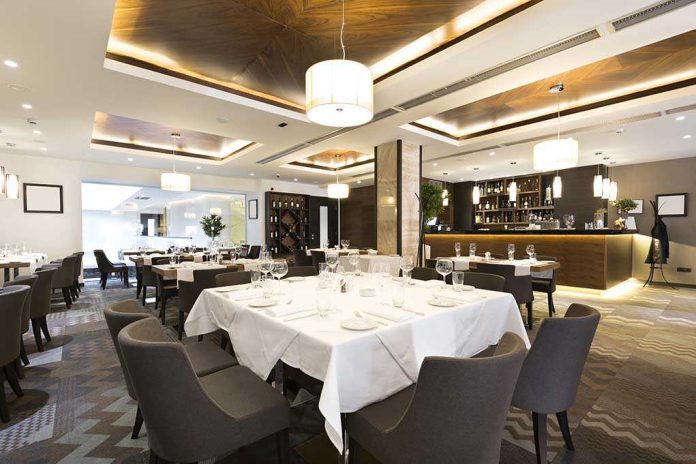
A so-called luxury food influencer’s criminal spree in New York City exposes how unchecked social media culture can harm honest businesses and embolden fraud, raising alarm for conservative Americans who value hard work and integrity.
Story Highlights
- A Brooklyn woman posed as a high-end food influencer, scamming elite NYC restaurants by evading bills and exploiting her online persona.
- Chung’s repeated fraud, enabled by the influencer economy and luxury branding, resulted in at least five arrests for theft of services.
- Restaurants suffered financial losses and reputational harm, while law enforcement faced new challenges in deterring influencer-driven crime.
- The case highlights urgent risks in influencer marketing, prompting calls for common-sense verification and accountability to protect businesses and consumers.
Luxury Branding Meets Social Media Fraud
Pei Chung, a 34-year-old Brooklyn resident, orchestrated a string of scams across New York’s high-end dining scene by portraying herself as a luxury food influencer. Wearing brands like Prada, Louis Vuitton, and Hermes, she documented her lavish meals for thousands of followers, presenting an image of success and exclusivity.
Yet behind the curated posts, Chung repeatedly skipped out on bills, openly abusing the hospitality industry’s willingness to court social media exposure in hopes of attracting new customers. Her actions demonstrated how the influencer economy can be weaponized for personal gain, especially when common-sense safeguards are ignored.
Chung’s fraudulent activity escalated quickly. On October 22, 2025, she dined at the Michelin-starred Francie, then tried to barter her social media posts for payment. Days later at Peter Luger, she hid in the restroom for 45 minutes to avoid her bill, ultimately offering sexual favors to settle up before being arrested.
By November 11, she was caught again for failing to pay a $135 tab at Motorino Pizza. In total, her serial dine-and-dash scheme led to five arrests in just a few weeks, with similar incidents reported at other exclusive venues.
Each time, she attempted to leverage her perceived online influence—offering posts or exposure in exchange for costly meals, or simply vanishing before the check arrived.
Industry Vulnerabilities and the Cost to Honest Businesses
Restaurants, already operating in a challenging economic environment, suffered direct financial losses and were left to clean up the reputational mess created by Chung’s deception.
Owners and managers, hoping to benefit from influencer marketing, instead found themselves the victims of manipulation and fraud. Law enforcement, including the NYPD, intervened repeatedly, but the damage was done—raising concerns about the broader trend of influencer scams, which can leave hardworking Americans footing the bill for someone else’s online clout.
This episode underscores why conservative values like personal responsibility, respect for private property, and honest work are more vital than ever in an age of viral deception.
The case also prompted reflection within the hospitality industry. Many establishments, previously eager to collaborate with social media personalities, began tightening their verification and vetting processes.
Some owners issued public warnings to their peers, calling for stricter contracts and background checks before offering complimentary meals or access.
The episode has already led to a noticeable slowdown in the once-booming influencer partnership trend, as businesses prioritize security and transparency over hype.
Broader Implications for Social Trust and Policy Reform
Chung’s case shines a harsh light on the blurred boundaries between legitimate promotion and outright exploitation in the influencer economy. While many social media personalities offer real value to brands, unchecked access and lack of accountability have created fertile ground for bad actors.
The incidents triggered short-term financial losses for affected restaurants and could spark longer-term changes across the industry, with more formalized agreements and increased scrutiny of influencer collaborations.
There is also growing discussion of whether regulatory oversight is needed to protect both consumers and businesses from similar exploits in the future.
Sources:
Prada-loving faux food influencer is a serial dine-and-dasher at top NYC eateries: cops











